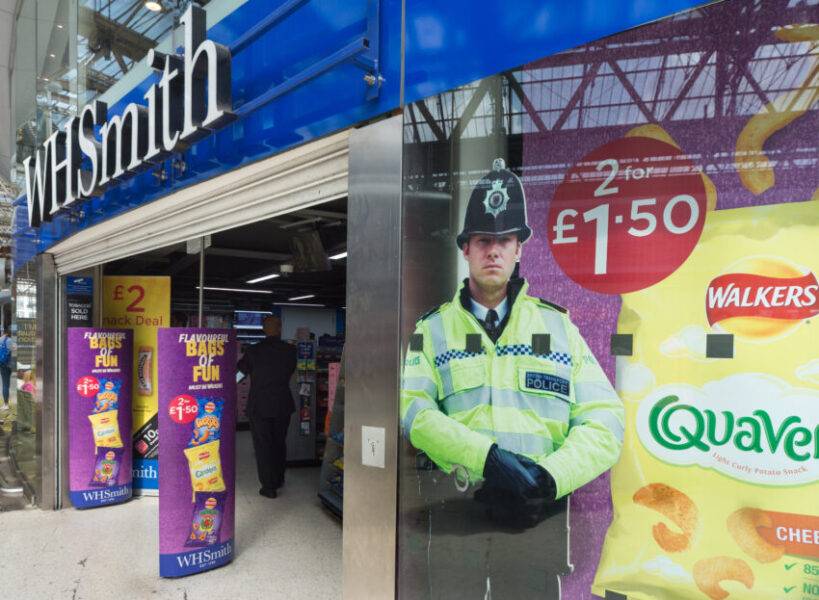Shoplifting has long been a concern for retailers worldwide, but recent events in London have brought the issue to the forefront.
In a shocking turn of events, hundreds of teenagers gathered on Oxford Street, expecting to take part in a mass robbery. The incident, fueled by viral posts on TikTok and Snapchat, left shoppers, store owners, and law enforcement on high alert. This brazen attempt at theft highlights a worrying trend that is going largely unpunished.
The incident on Oxford Street served as a wake-up call for retailers and law enforcement agencies. Social media platforms like TikTok and Snapchat played a significant role in organising this event, with posts inviting participants to wear balaclavas and gloves to “rob JD Sports.” The replication of a successful looting spree in an American candy store the previous year added fuel to the fire.
However, this time, the authorities were prepared. Sadiq Khan, the mayor of London, issued a warning, and the Metropolitan Police announced a heavy presence, sending a clear message that anyone committing a crime would face robust action.
Social Media: Amplifying the Problem
Social media platforms have become powerful tools for organizing criminal activities, including shoplifting sprees. The viral nature of posts on TikTok and Snapchat can quickly mobilize a large number of individuals, facilitating the planning and execution of thefts. The anonymity provided by these platforms adds to the allure for potential participants, making it difficult for law enforcement to identify and apprehend the culprits. This incident on Oxford Street highlights the need for stricter regulations and monitoring of social media platforms to combat the rising trend of shoplifting.
Shoplifting not only results in immediate financial losses for retailers but also damages their reputation. The stolen merchandise represents a direct hit to their bottom line, leading to higher prices for honest customers to compensate for the losses. Moreover, incidents like the one on Oxford Street create a sense of insecurity among shoppers, impacting their trust in retailers and their willingness to visit physical stores. Retailers must invest in robust security measures, both physical and digital, to protect their assets and maintain customer confidence.
To combat the rising shoplifting epidemic, there is a pressing need for stricter enforcement and a comprehensive approach that focuses on deterrence and rehabilitation. While heavy police presence during high-risk periods can act as a deterrent, it is equally important to address the underlying causes that drive individuals to engage in such criminal acts. Education and outreach programs can play a crucial role in imparting a sense of responsibility and discouraging potential offenders. Additionally, rehabilitation programs can help reintegrate individuals into society, reducing the likelihood of repeat offences.
The battle against shoplifting requires a collaborative effort between retailers and law enforcement agencies. Retailers must invest in cutting-edge security systems, including surveillance cameras, alarms, and trained security personnel. Sharing information and best practices among retailers can also help identify emerging trends and prevent future incidents. Law enforcement agencies, on the other hand, need to allocate adequate resources and manpower to tackle this growing problem effectively. Close coordination and communication between retailers and law enforcement are crucial for the success of any anti-shoplifting initiatives.
Technological Solutions: Leveraging Innovation to Combat Shoplifting
As shoplifters become increasingly sophisticated, retailers must embrace technological solutions to stay one step ahead. Artificial intelligence (AI) and machine learning algorithms can analyze data and detect patterns that may indicate shoplifting activities. RFID (Radio Frequency Identification) tags can help track merchandise within the store, making it easier to identify any attempts at theft. Additionally, facial recognition technology can aid in the identification and apprehension of known shoplifters. Embracing these innovative solutions can significantly enhance the effectiveness of anti-shoplifting efforts.
Raising public awareness about the consequences of shoplifting is crucial in shaping a responsible and law-abiding society. Education campaigns targeting both potential offenders and the general public can help foster a sense of accountability and discourage participation in criminal activities. Public-private partnerships can play a vital role in funding and executing these awareness programs. By working together, we can create a society where shoplifting is seen as unacceptable, and the consequences are widely understood.
Legislation plays a significant role in addressing the shoplifting epidemic. Stricter penalties for offenders, especially repeat offenders, can act as a deterrent. Simultaneously, the legal framework should focus on rehabilitating individuals, providing them with the necessary support systems to overcome the root causes of their criminal behavior. It is essential to strike a balance between punishment and rehabilitation to ensure a fair and effective justice system that protects both retailers and potential offenders.
Shoplifting is a global issue that requires international cooperation to tackle effectively. Sharing best practices and learning from successful anti-shoplifting initiatives in other countries can provide valuable insights and strategies. International conferences and forums can serve as platforms for collaboration and knowledge exchange, fostering a global network committed to combating shoplifting and protecting the interests of retailers worldwide.
The incident on Oxford Street serves as a stark reminder of the growing shoplifting epidemic and the need for concerted action. Retailers, law enforcement agencies, and society as a whole must unite to combat this problem effectively. Stricter enforcement, technological innovation, public awareness campaigns, and international cooperation can all contribute to reducing shoplifting incidents and creating a safer retail environment. By working together, we can send a clear message that shoplifting will not be tolerated, and offenders will face the consequences of their actions. It is time to take a stand against shoplifting and protect the interests of retailers and communities worldwide.


